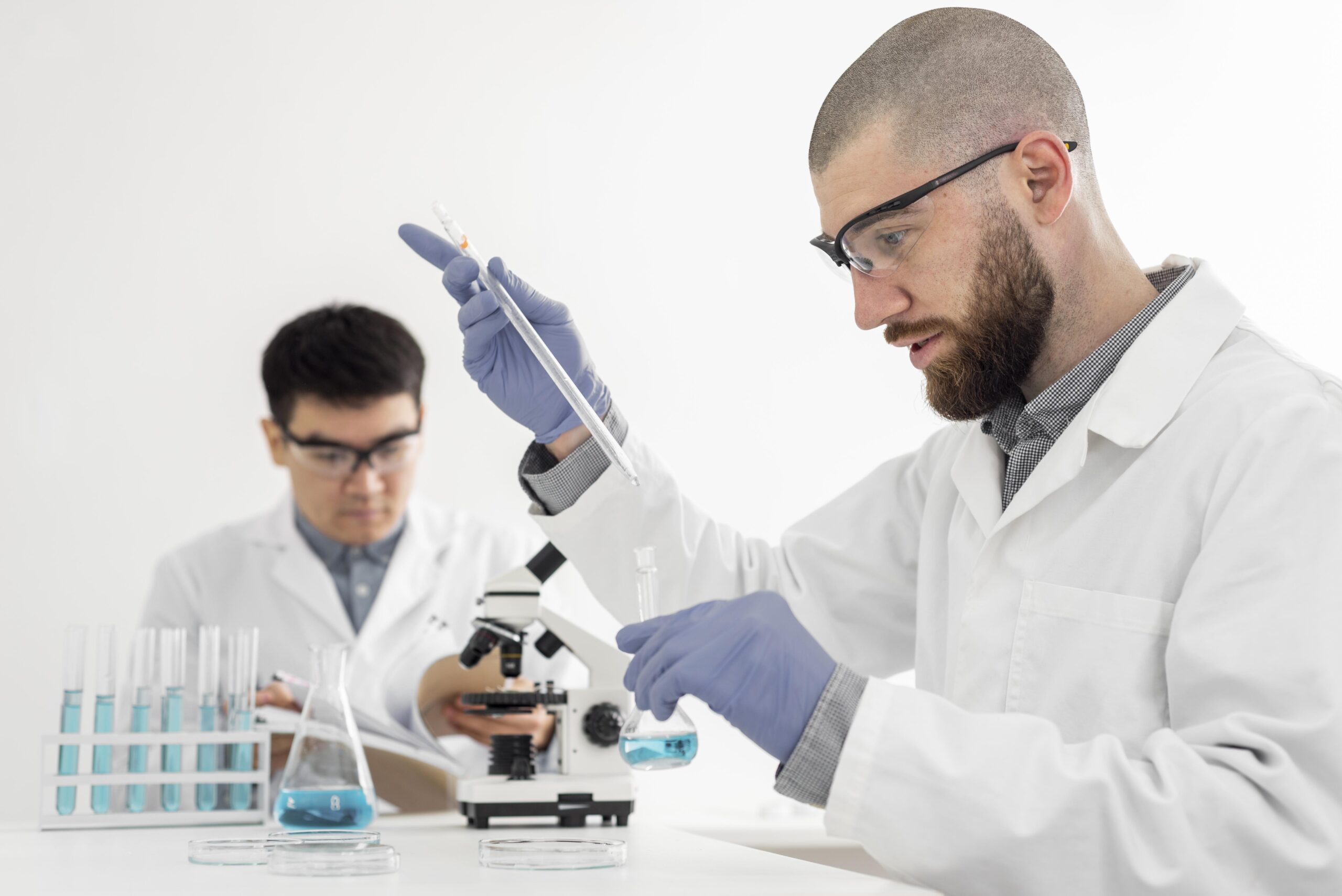Peptides vs. Proteins: Why Peptides Are Essential for Scientific Research
Peptides and Proteins in Scientific Research
In the field of biomedical and molecular research, both peptides and proteins serve as vital tools for exploring cellular functions and disease pathways. Although they share similarities as chains of amino acids, peptides and proteins have distinct characteristics that make each uniquely valuable in scientific studies. This article examines the key differences between peptides and proteins, discusses why peptides are often preferred for specific research applications, and explores their role in studying disease pathways.
Key Differences Between Peptides and Proteins
Peptides and proteins are both composed of amino acids, but they differ significantly in size, structure, and function:
- Size: Peptides are generally shorter chains of amino acids (typically fewer than 50), while proteins are longer, often folding into complex three-dimensional structures. This smaller size makes peptides easier to synthesize and manipulate in laboratory settings.
- Structure: Proteins typically have complex tertiary and quaternary structures that give them specific shapes for various biological functions. Peptides, being simpler, lack these intricate structures, making them more versatile and easier to study in controlled research environments.
- Function: Proteins often function as enzymes, structural components, or transporters, while peptides primarily act as signaling molecules, influencing cell communication and intracellular processes.
Why Peptides Are More Suitable for Certain Research Applications
Peptides’ smaller size and simpler structure make them ideal for certain types of research that demand precision and control. Here’s why peptides are often chosen over proteins for specific research purposes:
- Stability and Synthesis
Peptides are generally easier to synthesize and can be designed with high purity, allowing researchers to control their characteristics accurately. This stability and ease of synthesis are essential in studies that require consistent and reproducible results. - Targeted Interaction
Due to their size and structure, peptides can mimic natural signaling molecules, making them effective in studying cell signaling and intracellular communication. Their targeted action allows researchers to investigate specific cellular pathways without the complexity that comes with larger proteins. - Suitability for Disease Pathway Studies
Peptides are valuable in studying disease mechanisms because they can interact with specific receptors or enzymes in a controlled manner. By introducing peptides into cellular models, researchers can observe the impact on pathways related to inflammation, cancer, and metabolic diseases, gaining insights that inform potential therapeutic strategies.
Application Examples: Peptides in Disease Pathway Research
Peptides have proven instrumental in advancing our understanding of various disease pathways. Here are two examples of how scientists utilize peptides in research:
IGF-1 in Cancer Research
IGF-1 (Insulin-like Growth Factor 1) is a peptide that plays a role in cell growth and proliferation. Researchers use IGF-1 to study how cancer cells interact with growth signals, helping to understand how tumors may exploit growth pathways. By analyzing IGF-1 interactions, scientists are gaining insights into oncogenic pathways and potential approaches for targeted therapies 1.
BPC-157 in Inflammation Studies
BPC-157 is a synthetic peptide often studied for its role in tissue repair and anti-inflammatory effects. In laboratory settings, BPC-157 is used to explore how cells respond to inflammation, which is critical in understanding conditions like arthritis and inflammatory bowel disease. This research provides valuable information about cellular repair mechanisms and how inflammation impacts various diseases 2.
Responsible Use and Sourcing of Research Peptides
For researchers to obtain accurate and reproducible results, it is crucial to source high-quality peptides from reputable suppliers. Quality control ensures that the peptides are consistent and free from impurities, which is essential for maintaining the integrity of scientific studies.
The peptides available on our website are intended strictly for research purposes. They are not approved by the FDA for therapeutic use or human consumption and should be handled in laboratory environments by qualified researchers. Our commitment at [Your Company Name] is to support high-quality scientific research by providing pure, reliable peptides for use in laboratory studies.
The Essential Role of Peptides in Research
While both peptides and proteins play critical roles in scientific research, peptides offer unique advantages due to their size, simplicity, and targeted interactions. These properties make them essential tools for studying cell signaling, disease pathways, and inflammation mechanisms. By responsibly sourcing high-quality peptides and adhering to research-only guidelines, scientists can continue to unlock new insights that shape the future of biomedical research.
References
- Jones, J.I., et al. IGF-1 and its role in cellular growth and cancer research. Endocrine Reviews, vol. 12, no. 1, 2011, pp. 121-137.
- Sikiric, P., et al. BPC-157’s anti-inflammatory and tissue repair effects in laboratory studies. Current Pharmaceutical Design, vol. 17, no. 16, 2011, pp. 1612-1632.











